Have you ever wondered about THC edibles, those intriguing treats that mix pleasure with wellness? Whether it’s a gummy bear, a chocolate bar, or even a cup of tea, THC-infused products have been creating waves in the health and lifestyle sector.
In this article, we promise to satiate your curiosity. We’ll delve into what these edibles exactly are, their history, their effects on the human body, and how to consume them safely. Plus we will take a close look at their legality across the United States. Stay tuned!
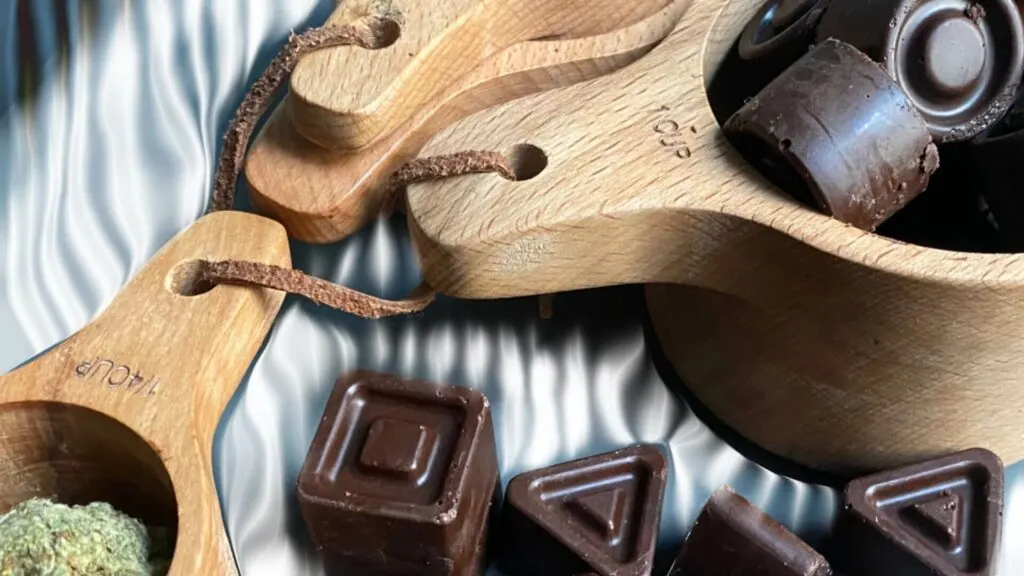
Understanding THC Edibles
THC edibles refer to food or beverage products that are infused with tetrahydrocannabinol (THC), the main psychoactive compound found in cannabis. They vary greatly in their strength and content, providing an array of experiences based on dosage. Examples range from brownies and cookies to lollipops, beverages, and even cooking oils.
Despite being a relatively new trend in the mainstream market, the history of THC edibles extends far back into human civilization. Many ancient cultures used cannabis-infused edibles for religious rituals and medicinal purposes.
Over time, they’ve evolved into a popular method for consuming cannabis due to their discrete nature and long-lasting effects compared to inhaled methods.
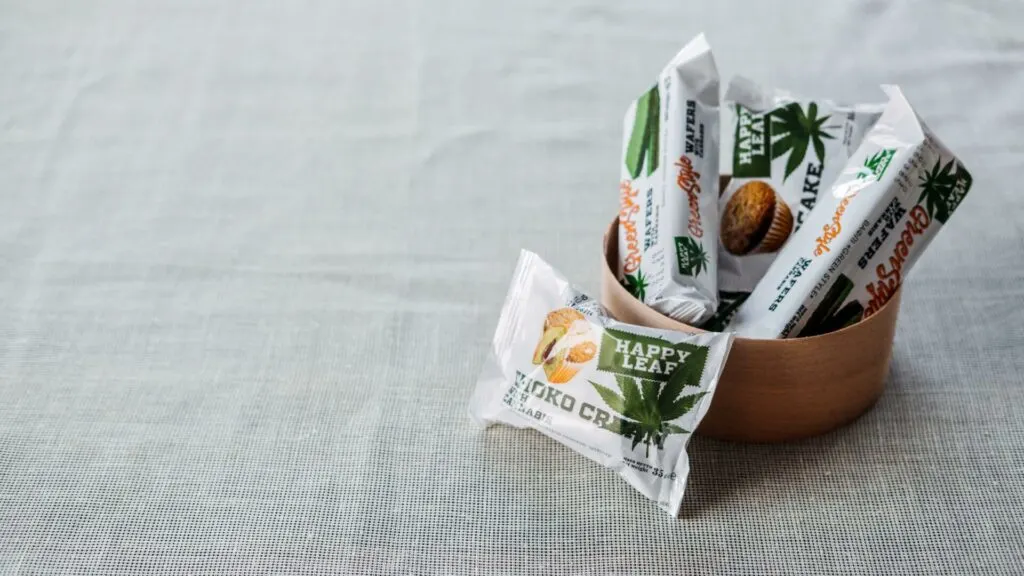
The Effects of Consuming THC Edibles
When you consume a THC edible, the effects can significantly differ from those experienced through smoking or vaping cannabis. This holds true even when considering edibles made with Delta-8, a variant of THC that’s gaining popularity for its milder and clear-headed high.
Ingesting a Delta-8 edible, or any THC-infused product, initiates a process that starts in your digestive system. It’s then processed via your liver before it enters your bloodstream. This pathway leads to differently experienced effects compared to those of inhaled cannabis.
Many people regard edibles as more potent than other kind of cannabis products. Often new users are cautioned about the ‘delayed’ effect. Unlike smoking, where the outcome is almost immediate, edibles might take anywhere from 30 minutes to 2 hours to kick in but typically last longer. This difference is primarily due to how our bodies metabolize food versus smoke or vapor.
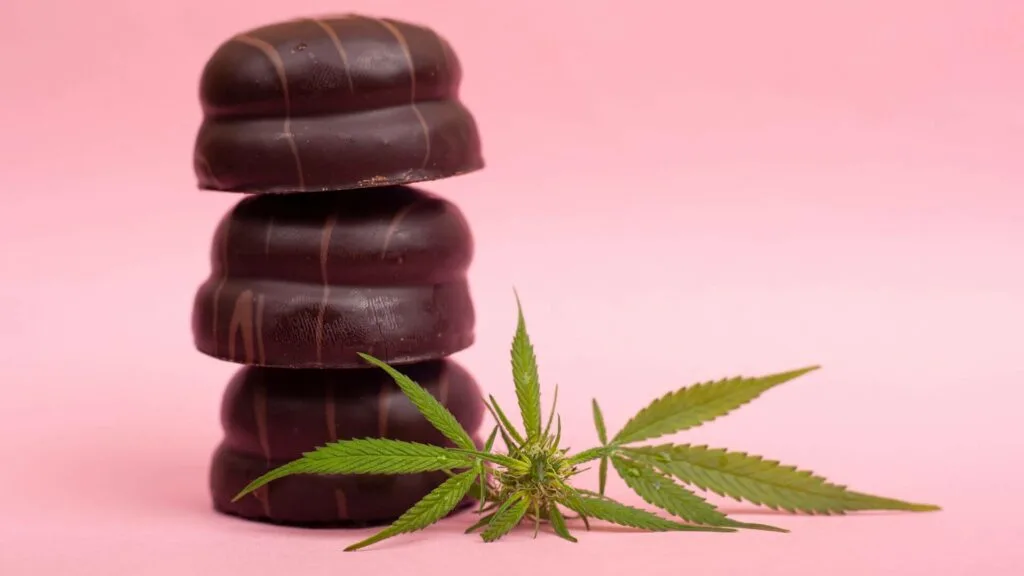
Safe Use and Dosage Guidelines for THC Edibles
Venturing into the world of THC edibles should be a delightful journey, not an overwhelming one. If it’s your first time, don’t feel pressured to start with high doses.
A single serving of a commercially made THC edible typically contains 10 milligrams of THC. As a beginner, it may be prudent to start with half this amount or even less. Particularly potent edibles often come in clearly divided segments so users can easily break off smaller doses.
The golden rule is “Start low and go slow”. You’ll need patience as the effect may take up to two hours to fully manifest. Keep in mind that consuming more before the initial dose has taken effect is one common reason for uncomfortable experiences.
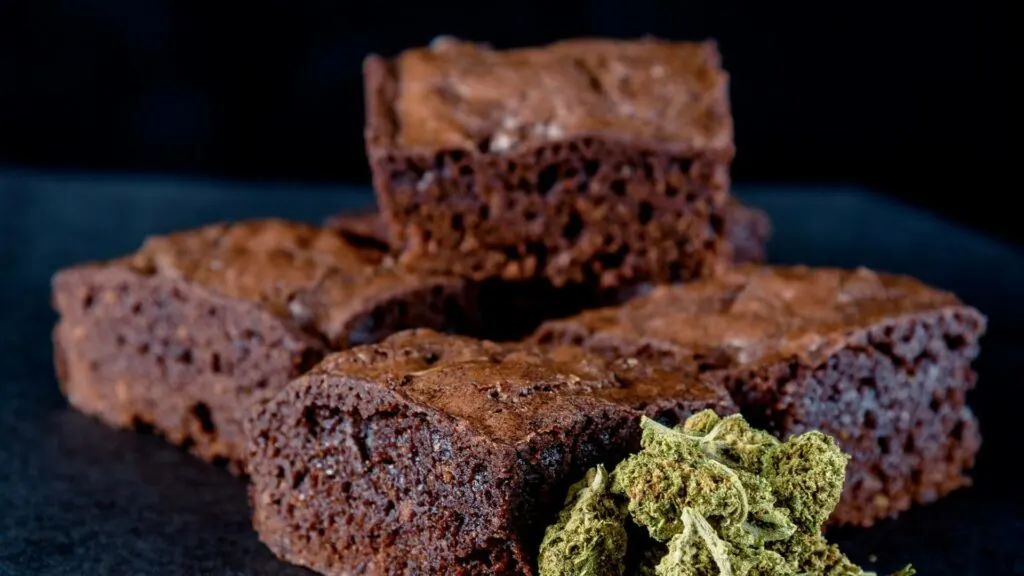
Medical Benefits of Using THC Edibles
In addition to offering a unique and often enjoyable experience, THC edibles also boast an array of potential health benefits. Their use extends beyond recreational purposes and steps into the realm of therapeutic treatment.
For instance, medical marijuana patients might choose edibles for their sustained effect. This makes them ideal for long-term symptom relief from conditions like chronic pain, inflammation, or insomnia. Unlike inhaled cannabis, which generally provides relief for a couple of hours at most, the effects of edibles can last anywhere between six to eight hours.
Also notable is their contribution towards alleviating nausea and boosting appetite in individuals undergoing treatments such as chemotherapy. Studies further suggest potential in managing mental health disorders like anxiety and post-traumatic stress disorder.
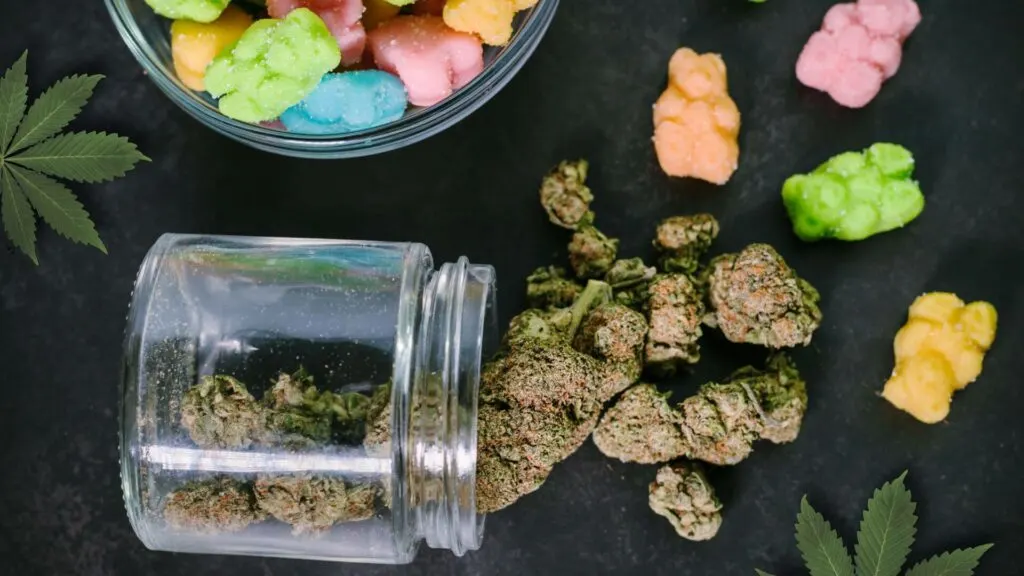
Current Legislation Surrounding THC Edibles in the United States
Navigating marijuana legislation in the United States can sometimes feel like threading a maze; laws vary greatly from state to state as does their progression towards full legalization of cannabis use. Keeping abreast with these evolving landscapes is essential when considering the consumption of THC edibles.
As of 2023, states such as Alaska, Arizona, California, Colorado, and others have fully legalized medicinal and recreational marijuana use; including THC edibles for adults 21 years and older. This number continues to rise with further additions like Connecticut, Maine, Maryland Massachusetts amongst others.
Several states remain ‘mixed’ in their stance towards cannabis – allowing medicinal use but withholding full recreational legality as seen in Alabama, Arkansas, Florida, and more. Those denoted ‘mixed*’ such as Minnesota or those permitting CBD oil only represent another layer in this cocktail of varied stances.
Finally, we have locations where marijuana remains fully illegal – such as Idaho or Kansas – with both recreational and medicinal usage still prohibited. Of course, this information is ever-evolving, as laws continue to change regularly.
In conclusion, it’s crucial to stay informed about current legislation in your area before buying or consuming THC edibles. These policies can shift quickly so keeping regular tabs on official sources or local law enforcement is always wise.

Jessi is the creative mind behind The Coffee Mom, a popular blog that combines parenting advice, travel tips, and a love for all things Disney. As a trusted Disney influencer and passionate storyteller, Jessi’s authentic insights and relatable content resonate with readers worldwide.
